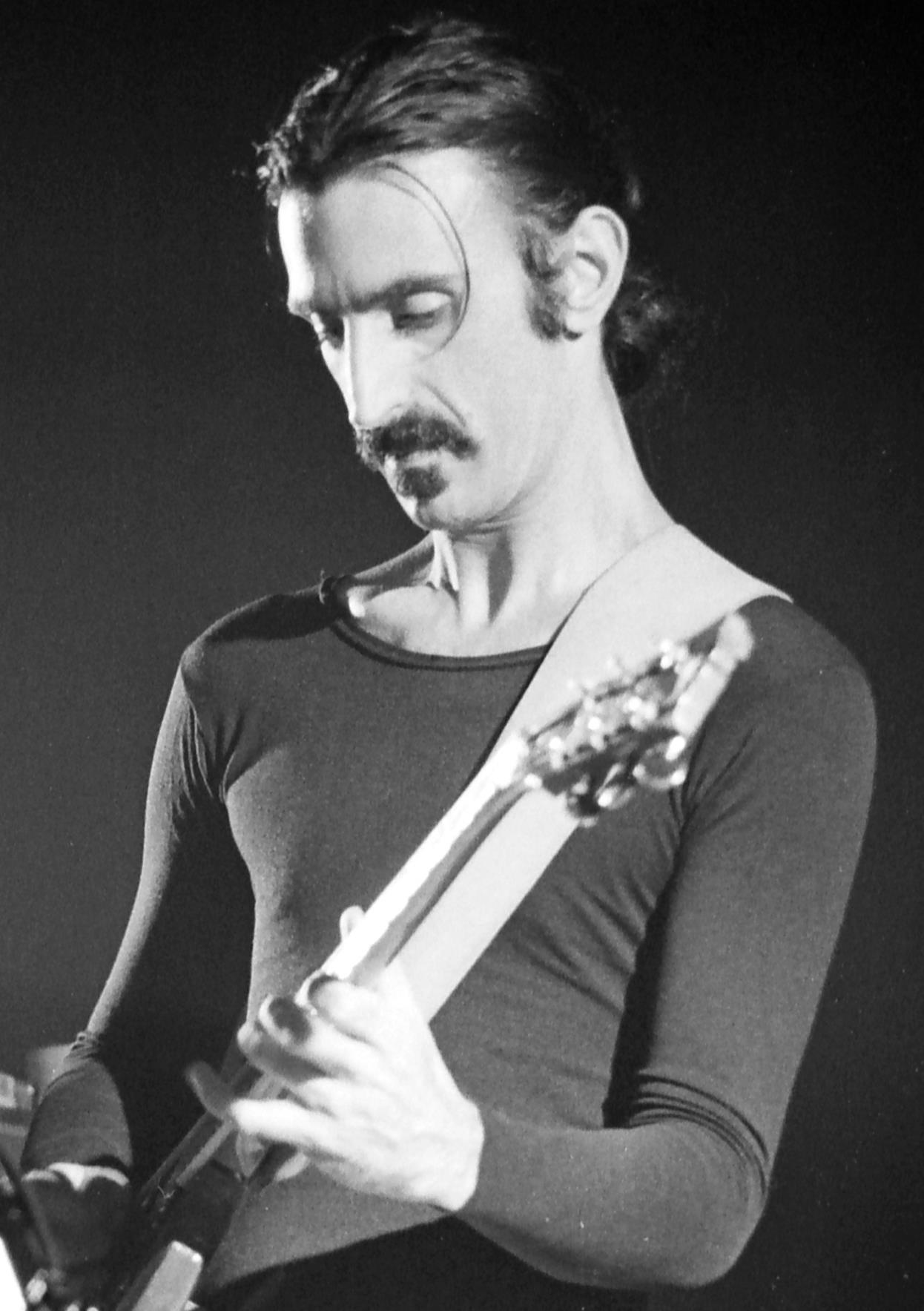 Here begins a new series of posts dedicated to Frank Zappa. Let me try to explain...
Here begins a new series of posts dedicated to Frank Zappa. Let me try to explain...Well. Well well well. Where to begin? Hmmm... You see, dear reader, I couldn't imagine a task in the music world more difficult then trying to "get into" Frank Zappa's music. All you have to do is take one glance at the sheer amount of albums the guy put out over his short life to see how daunting trying to grasp his work is. Go ahead, take a look. See what I mean? It just keeps going and going and going and going. Now keep in mind that the bulk of the man's music is dense, complicating, often drifting into the realms of atonal and avant-garde. Don't forget the fact that his music is totally unique. No other composer sounds like Zappa. His influence range as far as 50s Doo-Wop to the avant-garde composers like Edgard Varese and Igor Stravinsky. His music often drew directly from these inspirations but were not limited to them. Not by a long shot. I'd be hard pressed to find a composer more diverse than Zappa. He tried pretty much anything he felt like, often only once. Not all his music was inaccessible either, far from it. The guy had a knack for good melody and even had a few hit records here and there. The hardest thing for a Zappa beginner is deciding where to start.
Zappa was also a keen social-satirist. His lyrics often were meant as a critique on all the silly shallow and self-important figures in life. Nobody was safe from Zappa's sharp tongue and willingness to express his opinion. The problem I find is that this aspect has very quickly overshadowed Zappa's music. His name often creates images of outrageously offensive lyrics, over the top stage performances and an anti-establishment attitude. Very rarely is Zappa seen as I think he should be perceived: One of the greatest composers of the 20th Century.
Since this is a music blog I'm going to focus on Zappa the composer and Zappa the musician. There has been so much written about the guy from all angles that in order to present some new takes on his life and work I'm going to focus on what I know: Music as Art. Zappa's music ranges from all possible genres. He was a classical composer (in fact his first stabs at writing music was indeed composing chamber music as a teenager), a big band jazz composer (the focus for most Prog fans, rightly or wrongly), a pioneer of live recording (a few of his 'studio' albums were indeed recorded live in concert and spruced up and overdubbed in the studio) and a driving band leader who pushed the musical abilities of anyone who joined him to the very limits.
I wouldn't recommend you try to 'learn' his music in the same way I did. I've always liked a few Zappa albums, but it was only in the last few months that I've really dug into all his work. And I really went deep; I tried to do it all in one go. The whole thing, without any breaks. This is a very demanding and dangerous task. Unless you are keen on going mad I say do not do this. Instead explore Zappa in chunks. Pick a few albums and listen to them until you feel comfortable and familiar with them. Then, take a break. Go listen to someone else, something simple and enjoyable. I'm certain that Zappa's brain was super-sized and could handle all of this vast and complex music, but for the average human being it's simply too much to synthesize at once.
For the next post in this series I'm going to the end of Zappa's touring career: the 1988 tour. In particular the album I'm going to explore is "The Best Band You Never Heard In Your Life". It may be the perfect introduction to the world of Zappa and should be ideal for the Prog-Minded listener.
Until then, let me know what comes to mind when you think of Frank Zappa. Are you a life-long fan or are you just a casual listener who knows the "Strictly Commercial" compilation and not much else?
Don't forget
KEEP THE PROG ALIVE!

No comments:
Post a Comment